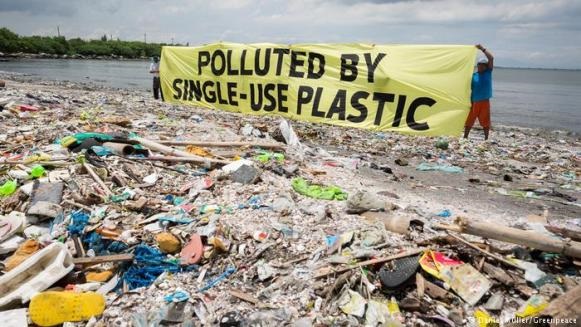Proposals to prevent plastic waste from being dumped in seas are on the table of a UN environmental conference that started on Monday, April 29, 2019 in Geneva, Switzerland.

Up to 90 per cent of the estimated 100 million tons of plastic that are polluting the seas come from land-based sources, according to the UN secretariat that manages several UN treaties on hazardous waste and chemicals.
In the two-week meeting, government representatives will decide whether to adopt amendments to better regulate plastic waste trade, to make sure the materials end up in recycling rather than as litter.
In addition, governments are mulling proposals that would oblige them to produce as little waste as possible, and to manage used plastic in an environmentally sound manner.
Germany is aiming at an international ban on the export of unsorted and hard-to-recycle plastic waste, Environment Minister Svenja Schulze said ahead of the talks in Geneva.
“There is a problem with unsorted and impure plastic compounds that illicitly end up in the environment in developing countries,” she said.
Whereas exports of this nature are permitted only for recycling purposes, research by environmental organisations like Greenpeace has shown that unsorted and hard-to-recycle mixed plastics are polluting the environment in these countries.
“That plastic waste from Germany exported to countries like Malaysia pollutes the environment is certainly not the rule, but where it does happen, this is unacceptable,” Schulze said.
China sharply restricted the import of plastic waste at the beginning of 2018, with the result that much now goes to South-East Asia and India.
Turkey is another destination.
Sorted plastics for recycling are valuable. They currently achieve prices above 700 euros (780 dollars) per ton, according to the German government.
In addition to the possible amendments of the Basel Convention, which governs trade in hazardous waste, government representatives in Geneva will also take up a proposal to ban Perfluorooctanoic acid (PFOA).
PFOA is used in non-stick cookware and food processing equipment.
The EU has already restricted the use of this chemical, which has been linked to cancers, thyroid disease and hypertension in pregnancy.
